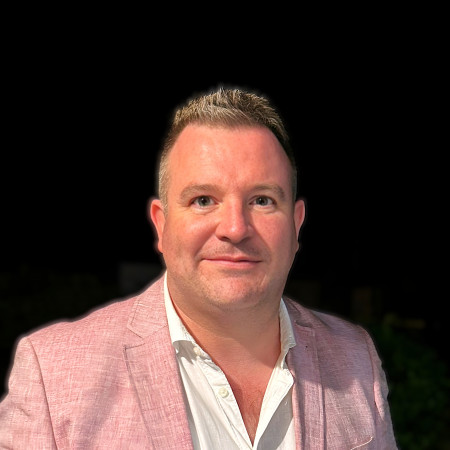
Dr Richard Longman
Senior Lecturer in Management and Associate Head of School - Postgraduate
Biography
Professional biography
I am a researcher, educator, and academic leader working at the intersections of critical management studies and the humanities. My work is grounded in a problem-oriented inquiry into the ethical, political, and organisational challenges facing contemporary societies, with particular attention to how we organise, what purposes we serve, and whose voices are included or marginalised in those processes. Through this lens, I interrogate the politics of knowledge, voice, and inclusion in business and management, and explore how organisations might be reimagined as sites of ethical relation, plural knowledges, and social transformation.
Originally trained as a classical musician, I bring an embodied, affective, and interdisciplinary sensibility to organisational research. This background informs my engagement with the business school as a critical space of inquiry, intervention, and epistemic possibility. My research spans critical organisation studies, cultural and creative industries, and sound studies, contributing to a broader project of unsettling extractive organisational norms and cultivating alternative ways of organising grounded in relationality, care, and plural epistemologies.
I currently serve as Associate Head of School - Postgraduate, where I oversee our taught postgraduate portfolio and lead the strategic redesign of our MBA and a new Masters in Management (MiM). This work focuses on embedding values-led leadership, inclusive and reflexive curriculum design, and critical engagement with the complex and contested realities of business and society across our globally delivered, triple-accredited programmes. My leadership aims to cultivate pedagogical and epistemological spaces that are responsive to diverse learner needs and oriented toward ethical, sustainable, and socially just forms of organising.
Research interests
My research explores the politics of organising, resistance, and epistemic disruption in the context of polycrisis. I examine how organisations navigate intersecting ecological, social, and epistemological challenges, and how concepts such as truth, ignorance, affect, and authority shape collective sense-making and institutional response. I am particularly interested in how crises are understood, denied, or silenced, and what this reveals about the ethical and political dimensions of knowledge production.
A distinctive strand of my research focuses on sound and sonicity in organisational life. I investigate how sonic practices (such as listening, silence, rhythm, and voice) structure organisational ethics, inclusion, and responsiveness. These inquiries contribute to emerging conversations in sound and organisation studies, drawing on diffractive, affective, and narrative methodologies to reorient how we understand knowledge, power, and relation.
Much of my empirical work is situated in creative and cultural contexts, including opera, orchestras, and arts organisations. These sites offer rich ground for exploring how aesthetics, embodiment, and collective becoming disrupt managerial logics and open space for plural, inclusive, and ethically attuned forms of organising.
Publications and public scholarship
My work has appeared in journals including Work, Employment and Society, Management Learning, Organization, Women, Gender & Research, and puntOorg, alongside contributions to edited collections on critical management, aesthetics, and epistemology.
I am committed to producing scholarship that resonates beyond the academy. One such initiative is my Substack – Organising Songs, Sounds, and Silences – which uses music and the un/sounded world as critical methods for exploring organisational life. Each post weaves sonic analysis, social critique, and personal narrative to examine how what is voiced, silenced, or dismissed as noise can help us sense, contest, and reimagine systems of organising. The series reflects a wider epistemological commitment to listening otherwise: as both methodology and mode of political engagement.
Teaching interests
My teaching is informed by a commitment to critical pedagogy, epistemic plurality, and inclusive practice. I view learning as a relational, embodied, and transformative process: one that enables students to engage ethically and reflectively with the uncertainties of contemporary organisational life.
I have designed and delivered sessions, modules, and programmes across online, hybrid, and in-person formats, working with diverse and international cohorts. My pedagogical approach is shaped by my research into alternative organising and sensory methodologies, and by a sustained commitment to equity and inclusion in management education.
I am the author of an award-winning case study (Leadership, Legacy, and Accountability) that integrates critical thinking with real-world organisational complexity, exemplifying my commitment to research-informed, socially attuned teaching practice. I hold a Master’s in Education from the University of Cambridge, a Postgraduate Certificate in Academic Professional Practice, and am a Fellow of the Higher Education Academy.
PhD supervision
I currently supervise Meriam Moujahid, whose doctoral project - Troubling Truths: The Construction of Knowledge and Ignorance in a Time of Global Crises - investigates how organisations navigate competing claims to truth and authority amidst climate emergency, inequality, and epistemic uncertainty. The research explores the politics of ignorance, the aesthetics of organisational sense-making, and the affective dimensions of truth-telling.
I welcome enquiries from prospective doctoral researchers interested in critical management studies, feminist thinking, sound and sensory methodologies, and alternative forms of organising. I view supervision as a rigorous and reflexive practice, oriented toward scholarly contribution and ethical transformation.
Editorial and external engagement
I am an Associate Editor of Culture and Organization and sit on the Editorial Boards of Organization and Management Learning, having previously served as Co-Editor-in-Chief of Qualitative Research in Organizations and Management: An International Journal. I am a past Chair of the Critical Management Studies Division of The Academy of Management.
Beyond academia, I am a Fellow of the Royal Society of Arts and collaborate widely with practitioners, artists, and institutions committed to values-led management education and inclusive organising. I am particularly interested in public scholarship and creative modes of engagement that connect academic inquiry with wider social and political concerns.
Publications
Book Chapter
Whose Early Career is it Anyway? Asymmetric Reciprocity and Abusive Friendships in Academia (2025)
Critical Theory and Human Resource Management (2024)
‘Hope-full purpose’: Time, oblivion, and the strange attractors of Pandora’s box (2019)
Journal Article
What Now? Listening, Learning, and Organising Against Transmisia in Prison (2025)
Singing a different tune: re-sounding intersectional voices in classical music (2025)
(Doing) Time Is Money: Confinement, Prison Work, and the Reproduction of Carceral Capitalism (2024)